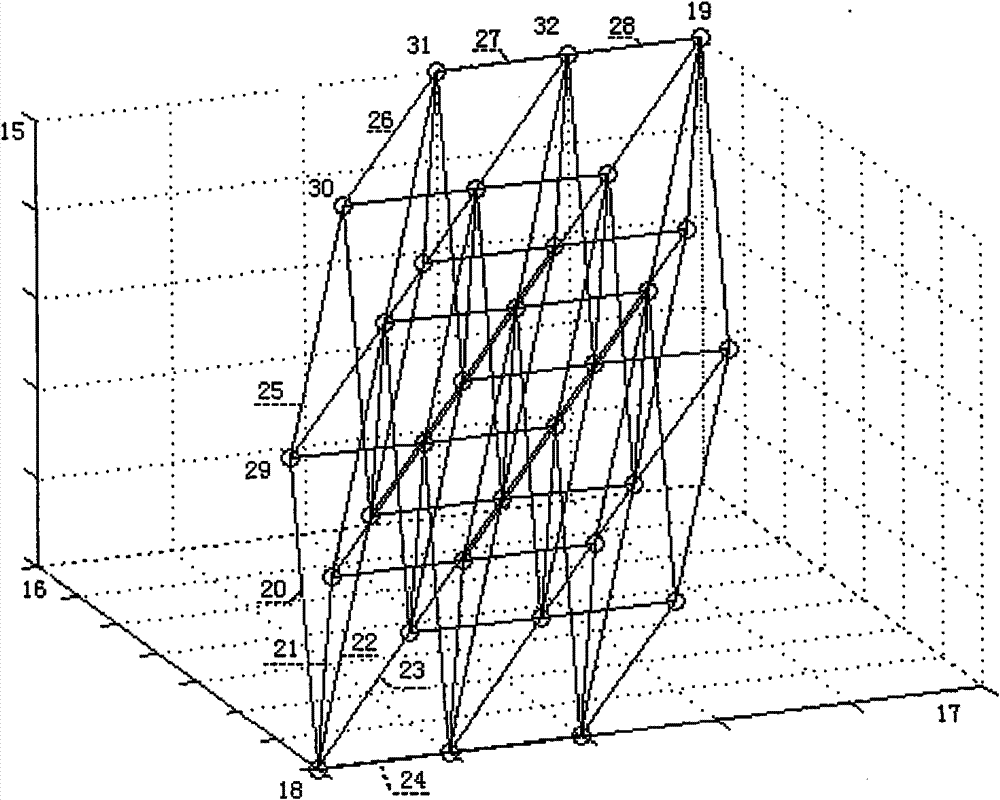Low-complexity joint source-channel encoding and decoding method based on space lattice diagram
An encoding and decoding method and space grid technology are applied in the field of low-complexity joint source-channel encoding and decoding, which can solve the problems of many state transition branches and high computational complexity, so as to reduce the amount of calculation, reduce the symbol error rate, and improve performance. Effect
- Summary
- Abstract
- Description
- Claims
- Application Information
AI Technical Summary
Problems solved by technology
Method used
Image
Examples
Embodiment Construction
[0020] 1. Low-complexity joint source-channel codec system based on spatial grid graph
[0021] A low-complexity joint source-channel codec system based on a spatial grid graph such as figure 1 shown.
[0022] First, the source symbol sequence 6 enters the variable length coding module 1 and the symbol sequence side information calculation module 2 at the same time, in the variable length coding module 1, performs variable length coding, and outputs the variable length coding code stream 7; The symbol sequence side information calculation module 2 calculates the "cumulative symbol number K, "cumulative bit number N" and "cumulative symbol weight W" of the symbol sequence, and outputs these three values as side information 8. Then the variable-length coded code stream 7 and the symbol sequence side information 8 are sent to the joint source channel coding module 3 for encoding, and finally the code stream 9 output by the joint source channel coding module 3 is sent to the ch...
PUM
 Login to View More
Login to View More Abstract
Description
Claims
Application Information
 Login to View More
Login to View More - R&D
- Intellectual Property
- Life Sciences
- Materials
- Tech Scout
- Unparalleled Data Quality
- Higher Quality Content
- 60% Fewer Hallucinations
Browse by: Latest US Patents, China's latest patents, Technical Efficacy Thesaurus, Application Domain, Technology Topic, Popular Technical Reports.
© 2025 PatSnap. All rights reserved.Legal|Privacy policy|Modern Slavery Act Transparency Statement|Sitemap|About US| Contact US: help@patsnap.com



